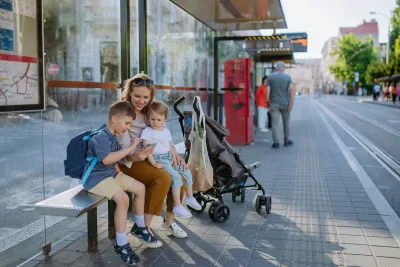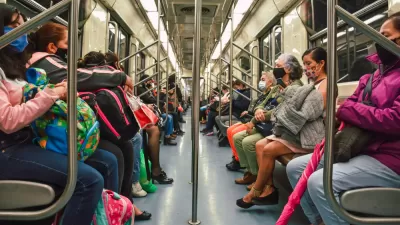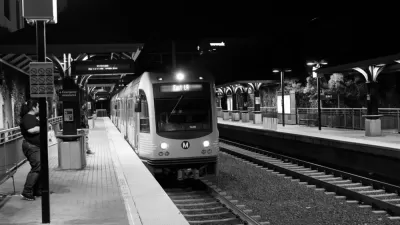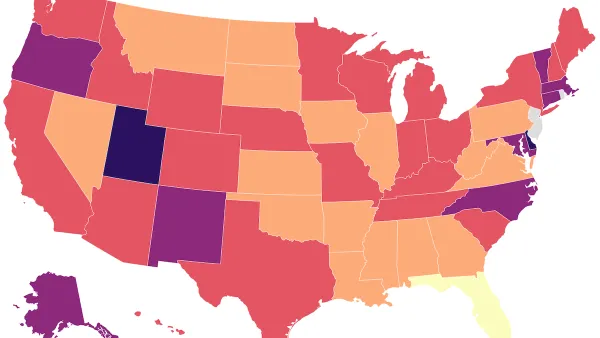‘Mobility hubs’ aim to make urban travel easier by connecting travel modes. Adding more services could make them more accessible and useful to women and families.

“The ‘mobility hub’ — or a central location where travelers can connect with multiple shared modes — is a buzzy transportation planning concept that's been inspiring articles and studies for years,” writes Kea Wilson in Streetsblog USA.
But do these trendy sites effectively serve women and caregivers? According to a Swedish and American research team, there is no concrete evidence of how these spaces support these groups, and workshops and surveys with women who use transit hubs revealed “a universe of invisible needs” that go largely unaddressed.
It is common knowledge that women tend to make shorter and more frequent “chained” trips; “They also perform a raft of invisible labors that aren't reflected on typical travel surveys, which tend to focus on destinations, distances, and time spent in transit, rather than the underlying reasons why people move — and the largely uncompensated work they need to perform along the way.”
The researchers found that women surveyed would benefit from services at mobility hubs such as playgrounds next to bus stops to occupy children or free WiFi so they can communicate or attend to errands while waiting for a bus or train. “If designers think creatively, mobility hubs can help alleviate the burden of other forms of unseen labor, too, like helping caregivers perform the ‘labor of hosting’ by popping up a holiday market stall on the sidewalk right next to the bikeshare stand, saving them a lengthy trip to buy gifts.”
FULL STORY: Do Women and Caregivers Need More From The ‘Mobility Hub’?

Maui's Vacation Rental Debate Turns Ugly
Verbal attacks, misinformation campaigns and fistfights plague a high-stakes debate to convert thousands of vacation rentals into long-term housing.

Planetizen Federal Action Tracker
A weekly monitor of how Trump’s orders and actions are impacting planners and planning in America.

Chicago’s Ghost Rails
Just beneath the surface of the modern city lie the remnants of its expansive early 20th-century streetcar system.

Bend, Oregon Zoning Reforms Prioritize Small-Scale Housing
The city altered its zoning code to allow multi-family housing and eliminated parking mandates citywide.

Amtrak Cutting Jobs, Funding to High-Speed Rail
The agency plans to cut 10 percent of its workforce and has confirmed it will not fund new high-speed rail projects.

LA Denies Basic Services to Unhoused Residents
The city has repeatedly failed to respond to requests for trash pickup at encampment sites, and eliminated a program that provided mobile showers and toilets.
Urban Design for Planners 1: Software Tools
This six-course series explores essential urban design concepts using open source software and equips planners with the tools they need to participate fully in the urban design process.
Planning for Universal Design
Learn the tools for implementing Universal Design in planning regulations.
planning NEXT
Appalachian Highlands Housing Partners
Mpact (founded as Rail~Volution)
City of Camden Redevelopment Agency
City of Astoria
City of Portland
City of Laramie





























